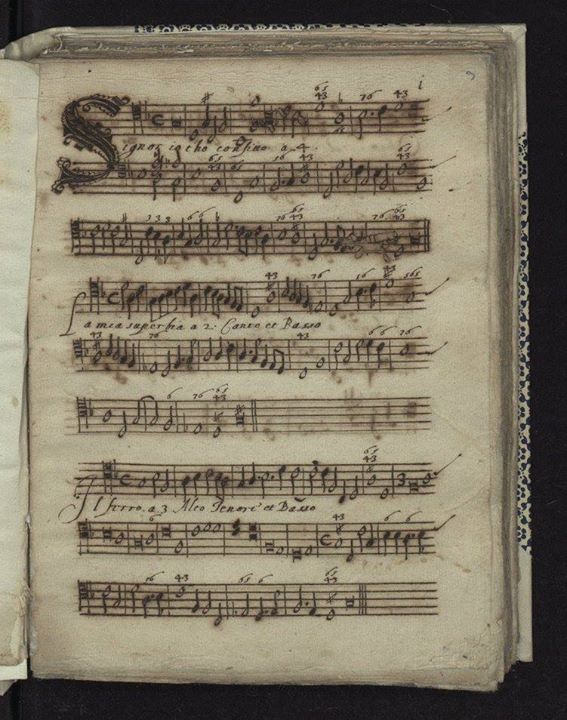It’s an inarguable fact that digital technologies have had a huge effect on library provision in general. The arts have perhaps been slightly slower than the sciences to explore and exploit digital potential, but the panel session on ‘The Impact of Digital Technologies on Music Provision in Libraries’ presented ample proof that music librarians have certainly kept up with the times in recent years.
We heard four speakers from different sectors: Claire Kidwell, from Trinity Laban Conservatoire of Music and Dance; Andra Patterson from the British Library; Roger Press from Academic Rights Press; and Simon Wright of Oxford University Press. Each spoke about their experience of working with digital technologies in their own environment.
Claire began by explaining that Trinity Laban’s use of digital technologies was a question of cost versus accessibility, and commented that whilst there was a distinct preference for electronic versus paper journals, the situation was different with books, where they had only a few electronic titles, and found that in any case, students still seemed to prefer print books. Printed music loans were not declining either, despite the availability of some music electronically.
Digital audiovisual provision is popular and well-served by subscriptions to Naxos, Naxos Jazz and Alexander Street Press, and it was notable that most CD spending nowadays is just to satisfy readers’ requests.
The library is keen to encourage the integration of electronic resources into teaching, and Claire gave the examples of Naxos playlists and the use of direct links to e-books for required readings. Direct links get round all the administrative hassle or negotiating rights, getting permission to use scans on the virtual learning network, and so on, so there’s much to recommend them. Teachers can also upload digital scores to the VLE, but the demand for immediacy can mean that their choices of teaching materials are dictated by the availability of the digital format, which is, pedagogically, a slightly skewed situation.
In short, Claire concluded, the library had made bold steps in the digital direction, but was a long way off being completely digital.

Andra Patterson is Metadata Manager for Europeana Sounds, and is based at the British Library. As a database mediator, her viewpoint was of course very different to that of someone managing an institutional library service. In the Europeana context, the digital format has meant that there are fewer geographical boundaries in the sense of either catalogues or resources, but it is at the same time harder for constituent libraries to identify and collect their own national output. Non-library suppliers, eg IMSLP (the Petrucci Music Library) and the choral CPDL in some ways represent competition for projects like Europeana Sounds.
It is easy to see the advantages offered by the digital format: Europeana promotes open access, and users can browse the database from home to discover things they might otherwise never have come across. However, its success depends on various technological considerations, including sustainability (dealing with breaking links), advancing technology, copyright and licencing, data exchange, and – crucially – compatible and high-quality metadata standards, to ensure that related objects will be displayed together as search results.
Academic Rights Press describes itself on its website as, “a publisher of academic databases featuring exclusive content sets for scholarly research, teaching and learning.” Roger Press reminded delegates that datasets (big data again!) can lead to new types of research. It’s possible to trial ARP’s music offering at http://www.academicrightspress.com/music-id-trial/trial-guide.
This music industry data gives insights into the popularity and importance of particular areas, and consumption data is notably useful, whereby users can monitor the popularity of artists, albums or singles in different countries. One is left keenly aware that music is, in fact, a commodity, and market forces are more influential than we might like to think!
Simon Wright is Head of Rights and Contracts (Music) at Oxford Unversity Press, and is in charge of licensing opera and ballet performances and recordings. His perspective was different again, reminding us that all new music is now published digitally: the brave new world is, in fact, upon us already. The whole supply chain depends on digital processes, and this includes the generation of simulated audio and transposition functionality. However, there are again the questions of agreeing standards, licensing, and copyright protection against piracy, not to mention the funding of all this, and ensuring the legal deposit of e-versions of new music. See http://global.oup.com/uk/music/musicrights/ for more on OUP Music Rights and Permissions.
Against this, publishers are keenly aware that many users seem to have an expectation of free access to digital content! There’s clearly a need to educate users to appreciate the sizeable costs that are actually involved.
Simon was also at pains to reassure us that musicians do still want paper scores; and orchestras will continue to need the extensive back-catalogue of older materials, even if the most progressive of professional orchestras are also considering electronic music stands for newer material.
The four speakers demonstrated very clearly that different sectors have different preoccupations, but in all situations, digital technology is here to stay, and simultaneously presents both challenges and opportunities.
It’s strange to reflect that when I began my career in music librarianship, compact discs were new technology, and my audiovisual option included splicing audiotapes and getting to grips with a 35mm camera! Things have certainly moved apace.
Karen McAulay, Royal Conservatoire of Scotland
Reblogged this on Karen McAulay Teaching Artist and commented:
My final blogpost on the recent IAML (UK & Ireland) Annual Study Weekend. (You can’t beat a blog-IOU, to ensure rapt attention throughout a session!)
[…] Having written my annoyance out of my system, I wrote another blogpost for the IAML(UK and Ireland) website. This time it was about the impact of digital media in music libraries. And it has been posted already – here. […]
[…] weeks ago I attended a music librarians’ conference. Among the many interesting talks was a panel discussion on issues around music digitisation. One of the items raised made me think about digitisation in a […]